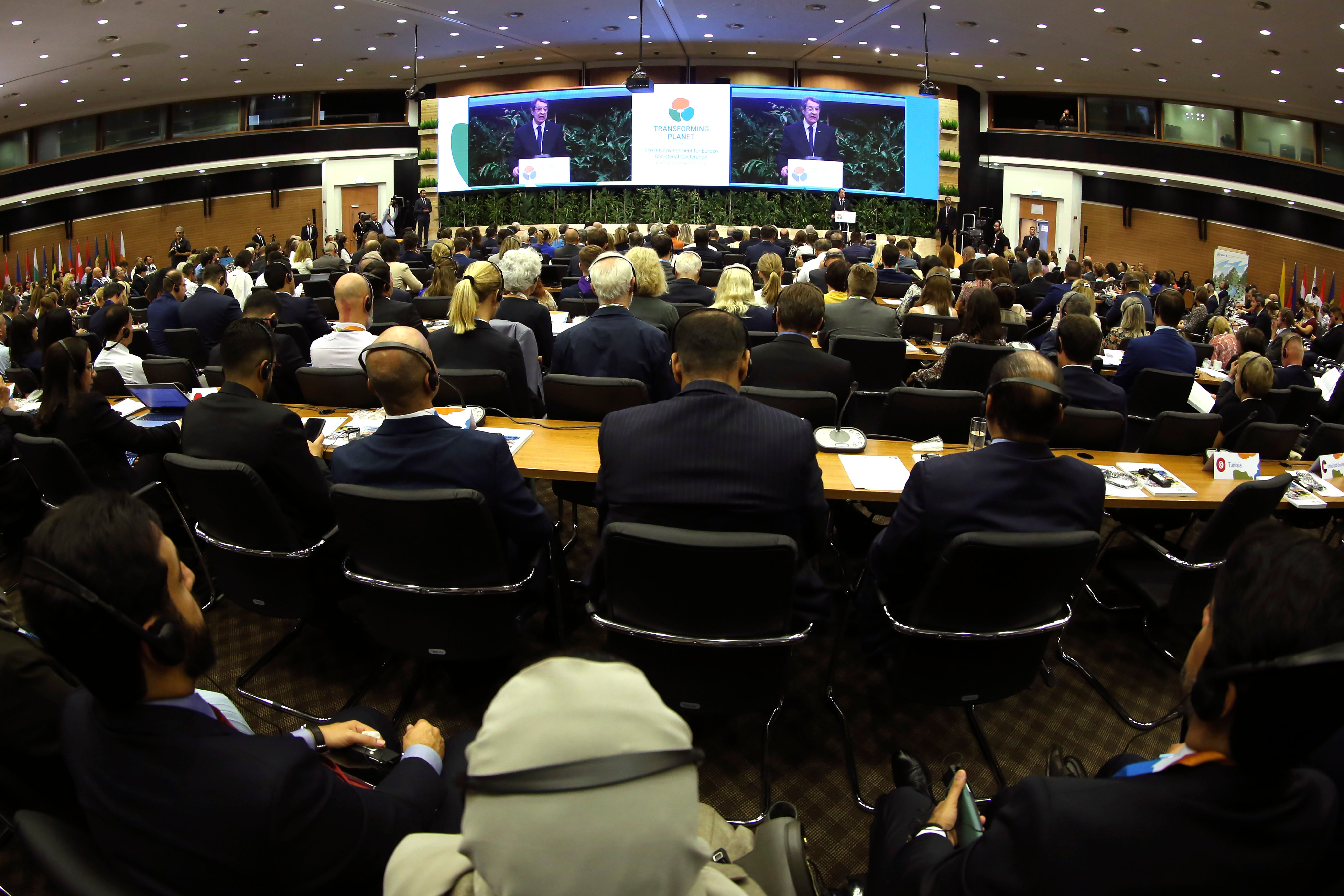UN officials: Energy crisis shouldn't delay emissions slash
United Nations officials say a switch back to coal and other fossil fuels by several countries to weather an energy crisis triggered by Russia’s war in Ukraine shouldn’t compromise efforts to curb greenhouse emissions

Your support helps us to tell the story
From reproductive rights to climate change to Big Tech, The Independent is on the ground when the story is developing. Whether it's investigating the financials of Elon Musk's pro-Trump PAC or producing our latest documentary, 'The A Word', which shines a light on the American women fighting for reproductive rights, we know how important it is to parse out the facts from the messaging.
At such a critical moment in US history, we need reporters on the ground. Your donation allows us to keep sending journalists to speak to both sides of the story.
The Independent is trusted by Americans across the entire political spectrum. And unlike many other quality news outlets, we choose not to lock Americans out of our reporting and analysis with paywalls. We believe quality journalism should be available to everyone, paid for by those who can afford it.
Your support makes all the difference.A switch back to coal and other fossil fuels by several countries to weather an energy crisis triggered by Russia’s war in Ukraine shouldn’t compromise efforts to curb greenhouse emissions, United Nations officials said Wednesday.
Sonja Leighton-Kone, a senior official with the United Nations Environment Program said lending a sympathetic ear to the energy “shock” many countries are suffering doesn’t mean the goal of a speedy switch to clean energy can’t be achieved.
“We do have tools, we have will and we are going to have to find a way to walk with balance between managing a very current threat, but keeping our eyes on the long term objectives that we have,” Leighton-Kone told the Associated Press.
She spoke at the 9th Environment for Europe Ministerial Conference held in Nicosia, the Cypriot capital.
United Nations Economic Commission for Europe Executive Secretary Olga Algayerova said suspending the timetable on achieving specific climate change goals whenever an energy crisis arises would mean they would never be achieved.
“We cannot relate everything to the situation that we see today,” Algayerova said. ”And if we just prolong and extend the deadline ... we never reach the goal.”
A number of countries have backtracked on their commitments to phase out fossil fuels for energy generation in the wake of the war in Ukraine, including Germany which decided in July to reactivate coal and oil-fired power plants. German Chancellor Olaf Scholz said the move was only temporary and that his government remains committed to doing “everything” to combat the climate crisis.
U.N. climate chief Simon Stiell said last month he’s hopeful the return to coal and oil is a “temporary regression” and that countries would accelerate their push for clean energy once the crisis subsides.
A U.N. environmental assessment found that countries in a region including Europe, the Caucasus and Central Asia continue to pump out more greenhouse gases overall because any reductions achieved mostly by western European countries have been offset by increases in the rest of the region.
Presenting the findings, Algayerova said the use of renewables increased in 29 countries between 2013-2017, but the region still largely relies on fossil fuels for 78% of total final energy consumption.
She said the consequences from climate change such as floods and droughts are affecting both the quality and quantity of fresh water in the region.
“The findings of this report must be a real wake up call for the region. The historic drought the region faced this summer is announcing what we should expect in the years to come,” said Algayerova.